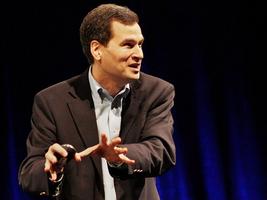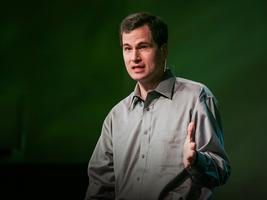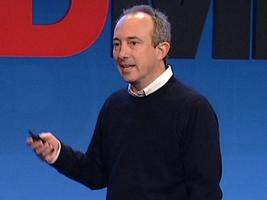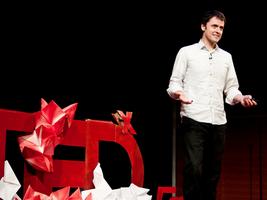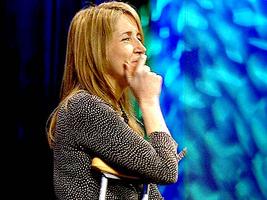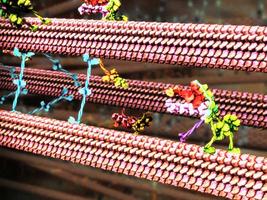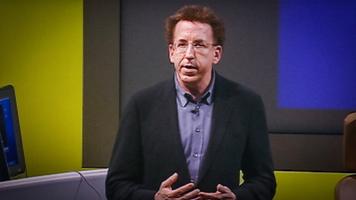Nili Gilbert and David Blood: A playbook for financing climate solutions
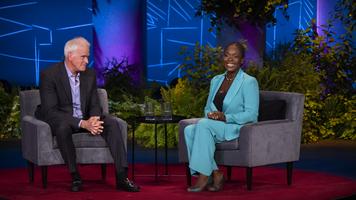
Tackling climate change costs a lot of money — and the financial sector is key to getting that money flowing. In a wide-ranging conversation, sustainable investment leaders Nili Gilbert and David Blood discuss where progress is being made on climate solutions, where capital still needs to move faster and why this is an unprecedented opportunity ...
David Pogue: Cool tricks your phone can do
David Pogue: Simplicity sells
David Agus: A new strategy in the war on cancer
David Blaine: How I held my breath for 17 minutes
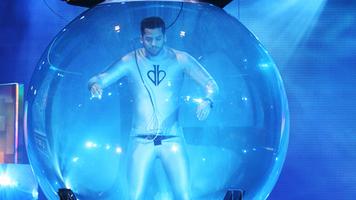
In this highly personal talk from TEDMED, magician and stuntman David Blaine describes what it took to hold his breath underwater for 17 minutes -- a world record (only two minutes shorter than this entire talk!) -- and what his often death-defying work means to him. Warning: do NOT try this at home.
David Anderson: Your brain is more than a bag of chemicals
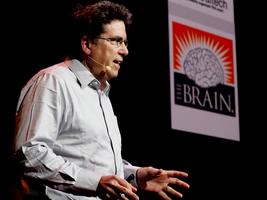
Modern psychiatric drugs treat the chemistry of the whole brain, but neurobiologist David Anderson has a more nuanced view of how the brain functions. He shares new research that could lead to targeted psychiatric medications -- that work better and avoid side effects. How's he doing it? For a start, by making a bunch of fruit flies angry.
David Pizarro: The strange politics of disgust
David McWilliams: The power of unconventional thinking
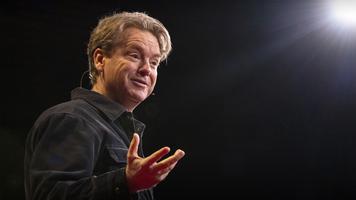
From World War I to the 2008 economic collapse and beyond, history shows that economists don't always see the future as clearly as they think they do, says economist David McWilliams. Using the words of W.B. Yeats, McWilliams makes the case for embracing unconventional thinkers – poets, artists and musicians – and offers a creative path towards ...
David Asch: Why it's so hard to make healthy decisions
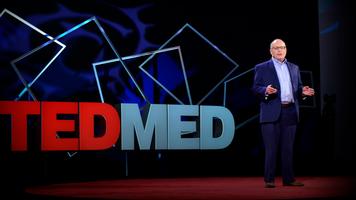
Why do we make poor decisions that we know are bad for our health? In this frank, funny talk, behavioral economist and health policy expert David Asch explains why our behavior is often irrational -- in highly predictable ways -- and shows how we can harness this irrationality to make better decisions and improve our health care system overall.
David Ikard: The real story of Rosa Parks -- and why we need to confront myths about Black history
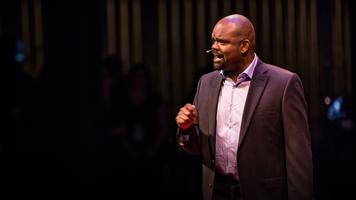
Black history taught in US schools is often watered-down, riddled with inaccuracies and stripped of its context and rich, full-bodied historical figures. Equipped with the real story of Rosa Parks, professor David Ikard highlights how making the realities of race more benign and digestible harms us all -- and emphasizes the power and importance ...
David Eagleman: Can we create new senses for humans?

As humans, we can perceive less than a ten-trillionth of all light waves. "Our experience of reality," says neuroscientist David Eagleman, "is constrained by our biology." He wants to change that. His research into our brain processes has led him to create new interfaces -- such as a sensory vest -- to take in previously unseen information about...
Liz Diller: A new museum wing ... in a giant bubble

How do you make a great public space inside a not-so-great building? Liz Diller shares the story of imagining a welcoming, lighthearted -- even, dare we say it, sexy -- addition to the Hirshhorn Museum in Washington, DC. (From The Design Studio session at TED2012, guest-curated by Chee Pearlman and David Rockwell.)
Lisa Damour: 3 steps of anxiety overload — and how you can take back control
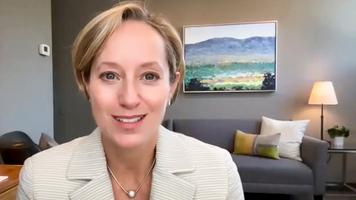
Anxiety is a normal part of life, so why are we so afraid of it? Psychologist Lisa Damour breaks down how to recognize when anxiety is helpful and when it's harmful, offering simple solutions for calming yourself and taking back control when you feel it slipping away. (This conversation, hosted by TED science curator David Biello, was part of an...
David R. Williams: How racism makes us sick
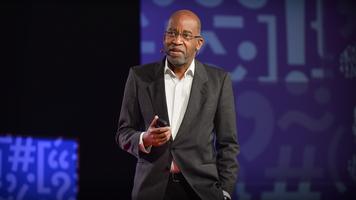
Why does race matter so profoundly for health? David R. Williams developed a scale to measure the impact of discrimination on well-being, going beyond traditional measures like income and education to reveal how factors like implicit bias, residential segregation and negative stereotypes create and sustain inequality. In this eye-opening talk, W...
David R. Liu: Can we cure genetic diseases by rewriting DNA?
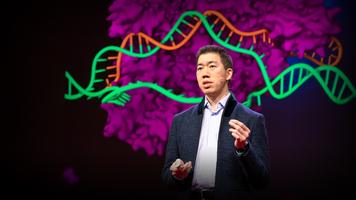
In a story of scientific discovery, chemical biologist David R. Liu shares a breakthrough: his lab's development of base editors that can rewrite DNA. This crucial step in genome editing takes the promise of CRISPR to the next level: if CRISPR proteins are molecular scissors, programmed to cut specific DNA sequences, then base editors are pencil...
David R. Flum: What does appendix pain feel like?
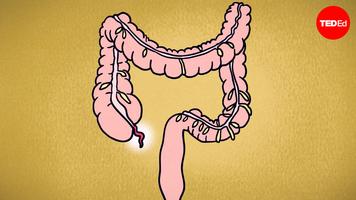
In 1961, an Antarctic expedition took a harrowing turn: Dr. Leonid Rogozov began feeling feverish, with an excruciating pain in his right side. It soon became clear that he had appendicitis. While Rogozov’s predicament was extreme, appendicitis is not uncommon; affecting roughly one in 12 people. So, what causes appendicitis? And why is this org...
Lisa Genova: How your memory works -- and why forgetting is totally OK
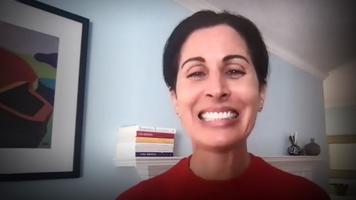
Have you ever misplaced something you were just holding? Completely blanked on a famous actor's name? Walked into a room and immediately forgot why? Neuroscientist Lisa Genova digs into two types of memory failures we regularly experience -- and reassures us that forgetting is totally normal. Stay tuned for a conversation with TED science curato...
TED Countdown: Is there a role for carbon credits in the transition to a fair, net-zero future?
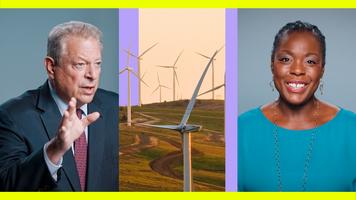
In June 2022, TED's climate initiative, Countdown, launched its Dilemma Series: events designed to look at some of the "knots" in the climate change space, where diverging positions have stalled progress and solidified into an inability to collaborate across differences. The event focused on the question: Is there a role for carbon credits in th...
Mandë Holford: The power of venom -- and how it could one day save your life
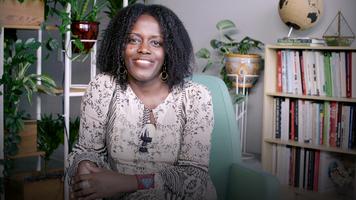
Venom can kill ... or it can cure. In this fascinating talk, marine chemical biologist Mandë Holford shares her research into animal venom, from killer sea snails to platypuses and slow lorises -- and explores its potential to one day treat human diseases like cancer. The mechanism behind this powerful substance is still mysterious, Holford says...
Danny Hillis: Understanding cancer through proteomics

Danny Hills makes a case for the next frontier of cancer research: proteomics, the study of proteins in the body. As Hillis explains it, genomics shows us a list of the ingredients of the body -- while proteomics shows us what those ingredients produce. Understanding what's going on in your body at the protein level may lead to a new understandi...
Yvonne Newbold: How to meet your child's difficult behavior with compassion

Yvonne Newbold's son, Toby, is one of the millions of young people living with a disability. Parenting Toby has offered her some lessons on how to help children move from anxiety-led behavior towards happier times. Drawing on her personal experience, she outlines some of the most effective and actionable of these strategies -- starting with a da...
Allison Hunt: How to get (a new) hip
Allison Leigh: Artemisia Gentileschi: The woman behind the paintings
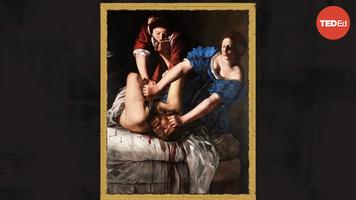
The biblical story of the heroine Judith slaying the brutal Holofernes is featured in countless works of art, including the Sistine Chapel. But the most iconic depiction was painted by an artist who tackled this ambitious scene when she was just 19 years old. Her name was Artemisia Gentileschi. So who was Artemisia, and what sets her depiction a...
Dallas Taylor: What silence can teach you about sound
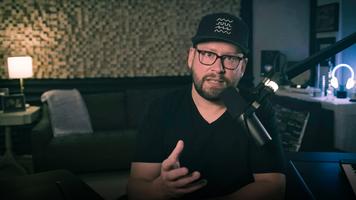
What can you hear in silence? In this exploration of sound, host of the podcast "Twenty Thousand Hertz" Dallas Taylor tells the story of arguably the most debated musical composition in recent history -- composer John Cage's iconic piece 4'33" -- and invites you to take notice of the soundscape around you. Watch to the end to experience a perfor...
Graham Shaw: Why people believe they can't draw
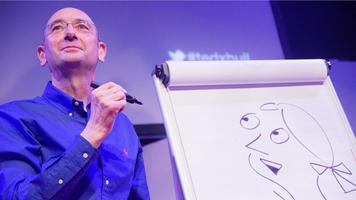
Most people think they can't draw, but communications expert Graham Shaw isn't buying it. In this fun, instructional talk, he demonstrates how a few adjustments to your drawing technique (and your attitude) can leave you with an effective new presentation tool as well as an outlet for your creativity.
Drew Berry: Animations of unseeable biology
Andrew Solomon: Love, no matter what
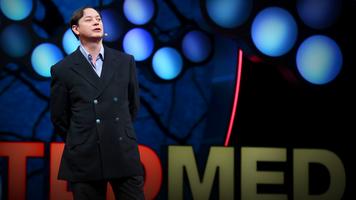
What is it like to raise a child who's different from you in some fundamental way (like a prodigy, or a differently abled kid, or a criminal)? In this quietly moving talk, writer Andrew Solomon shares what he learned from talking to dozens of parents -- asking them: What's the line between unconditional love and unconditional acceptance?
Miriam Zoila Pérez: How racism harms pregnant women -- and what can help
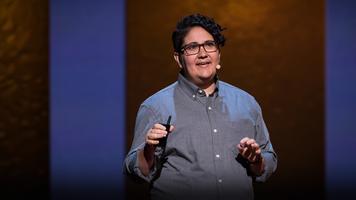
Racism is making people sick -- especially black women and babies, says Miriam Zoila Pérez. The doula turned journalist explores the relationship between race, class and illness and tells us about a radically compassionate prenatal care program that can buffer pregnant women from the stress that people of color face every day.
Arik Hartmann: Our treatment of HIV has advanced. Why hasn't the stigma changed?
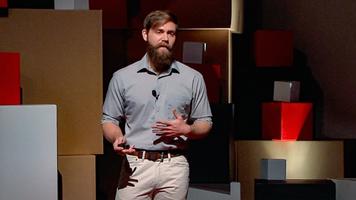
The treatment of HIV has significantly advanced over the past three decades -- why hasn't our perception of people with the disease advanced along with it? After being diagnosed with HIV, Arik Hartmann chose to live transparently, being open about his status, in an effort to educate people. In this candid, personal talk, he shares what it's like...
Dean Ornish: Healing through diet
